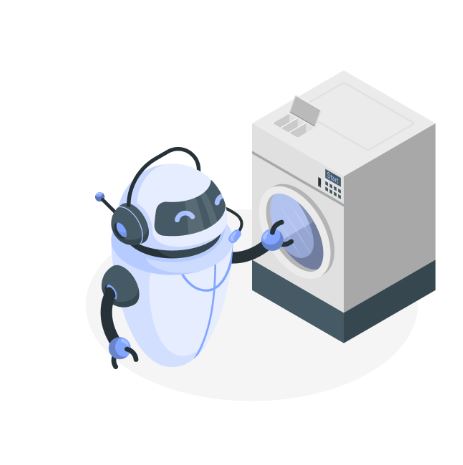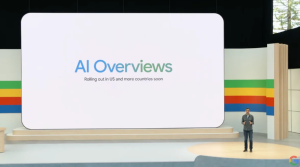“Powered by Artificial intelligence”. That’s the new buzzword in town. Almost every company is jumping on the bandwagon of creating “AI-powered products. According to Goldman Sachs, 36% of S&P 500 companies mention AI in their 2023 Q4. They fear being left behind in this new AI era. However, things have not gone as planned and the so-called AI-powered products have either turned out to be a scam or didn’t deliver the expected results.
This is known as AI-washing. In this article, we will have a look at what AI washing is, why companies do it and give scenarios of AI washing that you were not aware of and how to avoid getting scammed.
Skale Money Key Takeaways
- AI washing is the deceptive practice of falsely marketing products or services as AI-powered when they are not, leading to customer disappointment and mistrust in genuine AI solutions.
- Companies engage in AI washing due to the AI hype, misunderstanding of AI definition, or prioritizing profits over customer satisfaction.
- Major tech companies like Amazon have been caught in AI washing scandals, such as the “Just Walk Out” technology that relied on human workers rather than AI.
- AI washing can have serious consequences, including legal penalties, as seen in the case of Delphia Inc. and Global Predictions Inc. facing SEC charges.
- To avoid falling victim to AI washing, consumers should research products thoroughly, understand AI basics, review user feedback, and be skeptical of buzzwords without supporting evidence.
Table of Contents
AI washing defined
AI washing is the malpractice of showcasing a product or service as AI-powered yet it’s not. This happens when companies create false marketing campaigns to get more leads and sales from people interested in AI-powered products.
This later on confuses customers as their expectations are not met and their time and money end up being wasted. It also raises mistrust in the technology and affects the growth of genuinely AI-powered solutions.
Why companies promote AI washing
Companies’ main goal is to improve the bottom line. They need to get more leads, increase sales, cut costs, and stay relevant in the industry. As weird as it may sound, big tech companies have also been victims of AI-washing. Why does this happen? Here are some possible reasons:
- The AI hype: Ever since chat GPT became a thing, there has been growing interest in AI products. This growth has led to companies developing AI-powered products and services. Change is inevitable and businesses don’t want to be left out.
- AI definition: In some instances, people don’t know how to define AI. They end up labeling digital products as AI products. This misrepresentation can either be innocent, negligent, or fraudulent.
- Money-oriented: Some companies’ culture is money-oriented rather than being customer-centric. These companies prefer making an extra buck at all costs and don’t care about future consequences.
Examples of AI washing
As we mentioned earlier, there have been big tech companies that have fallen victim to AI-washing. Here are some examples that will surprise you:
Amazon Just walkout
Big tech company Amazon, has landed in the soup after it emerged that their just walk-out technology used in many stores was a fallacy. The company advertised this technology as an easy checkout where customers no longer have to queue when checking out after shopping.
They just walk out after shopping and payment will be made via the payment method they selected when walking in. Amazon claimed the technology relied on cameras that didn’t use facial recognition but AI-powered cameras and sensors.
Turns out just walk-out technology was powered by 1000 low-paid Indian workers in India. This is a great example of AI washing. Amazon claimed the technology was AI-powered yet in reality they contracted Indians who spied on customers as they shopped and added or removed items from their shopping cart list.
As late as 2022, the 1000 Indians were manually reviewing 70% of the transactions in 20 Amazon Go stores, 40 Amazon fresh grocery stores, and 2 whole food stores.
This has led to layoffs of innocent cashiers in the United States who lost their income to people in India. Amazon’s damage control team claims that the Indian team are data annotators but the fact is they lied to American consumers. Amazon is removing the technology from many of its stores but still wants to sell it to other businesses.
Devin – The “First” AI Agent Software Engineer
Are you a software engineer or have a dream of becoming one? Well, this year 2024 Cognition AI unveiled Devin. “The first AI software Engineer. ” Allegedly, Devin can think, code, and solve problems just like a software engineer. Will Devin replace software engineers?
But is this the case or is it just another marketing gimmick? Let’s find out what Devin can and cannot do and if you should use it in your software engineering team.
- Devin can learn new technologies: This is normal for AI programs and should not be exaggerated.
- Devin can find and fix bugs: This is where we draw the line. The presentation they used was misleading as they had a very well-documented git library that had less than a thousand lines of code. In real life, however, Devin can’t solve bugs as some bugs are not even code-based but logic-based and need human reasoning between clients and software teams.
- Devin can do real jobs: Another AI-washing strategy by Cognition AI. Coding and programming jobs are technical and require people with the know-how. A layman business owner would have no idea how to use Devin and would end up hiring a team of software engineers which defeats the purpose.
At the time of this writing, Devin is a closed source and we can’t test it on real-life projects. Maybe soon Devin can be an autonomous software engineer by just prompting it. This is AI-washing marketing by Cognition AI to attract more funding.
Delphia and Global Predictions Inc
AI washing has dire consequences such as taking investors for a bath. For instance, the United States Securities and Exchange Commission (SEC) accused Delphia Inc. and Global Prediction Inc. of exaggerating their use of AI to design investment strategies.
The two companies agreed to the charges and will pay $400,000 in total civil penalties. SEC Chair Gary Gensler said,
“We find that Delphia and Global Predictions marketed to their clients and prospective clients that they were using AI in certain ways when, in fact, they were not. We’ve seen time and again that when new technologies come along, they can create buzz from investors as well as false claims by those purporting to use those new technologies. Investment advisers should not mislead the public by saying they are using an AI model when they are not. Such AI washing hurts investors.”
Wirecard
The German startup was an innovative company providing online payment services. Marcus Braun the then CEO of Wirecard was fond of using technical jargon such as machine learning, and ecosystem in his presentations. This made him appear as a tech visionary.
In 2017 the CEO told investors that AI was used to process and analyze data in wire card systems. However, the Financial Times found out that behind-the-scenes Wirecard staff were using spreadsheets. This was one of the first instances of AI washing.
Investors started selling their shares and this led to Wirecard’s shares crashing. After investigations 2 billion dollars was found missing from Wirecard. To learn more about Wirecard’s fraud watch this investigative report by Cold Fusion.
How to prevent falling for AI washing marketing
To avoid being a victim of AI-washing you can do the following:
- Understand the meaning of AI and machine learning
- Do research before buying an AI-powered product or service
- Have a look at other people’s reviews of the product or service
- Request evidence to back the claims
- Don’t believe in the buzzwords innovation, creative, and revolutionary without facts
Final words
AI washing will increase over time till we regulate the AI industry and come up with laws that protect consumers. Artificial intelligence will also get better with time. However, you need to be cautious about AI products you see online and do some research before subscribing to an AI-powered service or product. Do you use AI-powered products? If so, are you a victim of AI washing?
FAQs
What is AI washing?
AI washing is the deceptive practice of marketing products or services as AI-powered when they actually aren’t, misleading customers and potentially damaging trust in genuine AI solutions.
Why do companies engage in AI washing?
Companies may engage in AI washing due to the current AI hype, misunderstanding of AI technology, or prioritizing short-term profits over customer satisfaction and honesty.
Can you give an example of AI washing?
A notable example is Amazon’s “Just Walk Out” technology, which was marketed as AI-powered but actually relied on low-paid human workers in India to monitor transactions.
Are there consequences for companies that practice AI washing?
Yes, there can be serious consequences. For instance, Delphia Inc. and Global Predictions Inc. faced charges from the SEC and had to pay $400,000 in civil penalties for exaggerating their use of AI.
How can consumers protect themselves from AI washing?
Consumers can protect themselves by researching products thoroughly, understanding basic AI concepts, reading user reviews, requesting evidence for AI claims, and being skeptical of buzzwords without supporting facts.
Author: Cosmas Mwirigi
Cosmas Mwirigi is an established freelance writer with over five years of experience and the founder of Skalemoney.com. His content has been published by multiple publishers, including PV-Magazine, Slidebean, Bridge Global, Casinos.com, Gambling.com, and Reverbico. Mwirigi is an expert writer in iGaming, B2B, SaaS, Finance, digital marketing and Solar renewable energy. To contact him for his services, connect with him on his LinkedIn.
![]()




